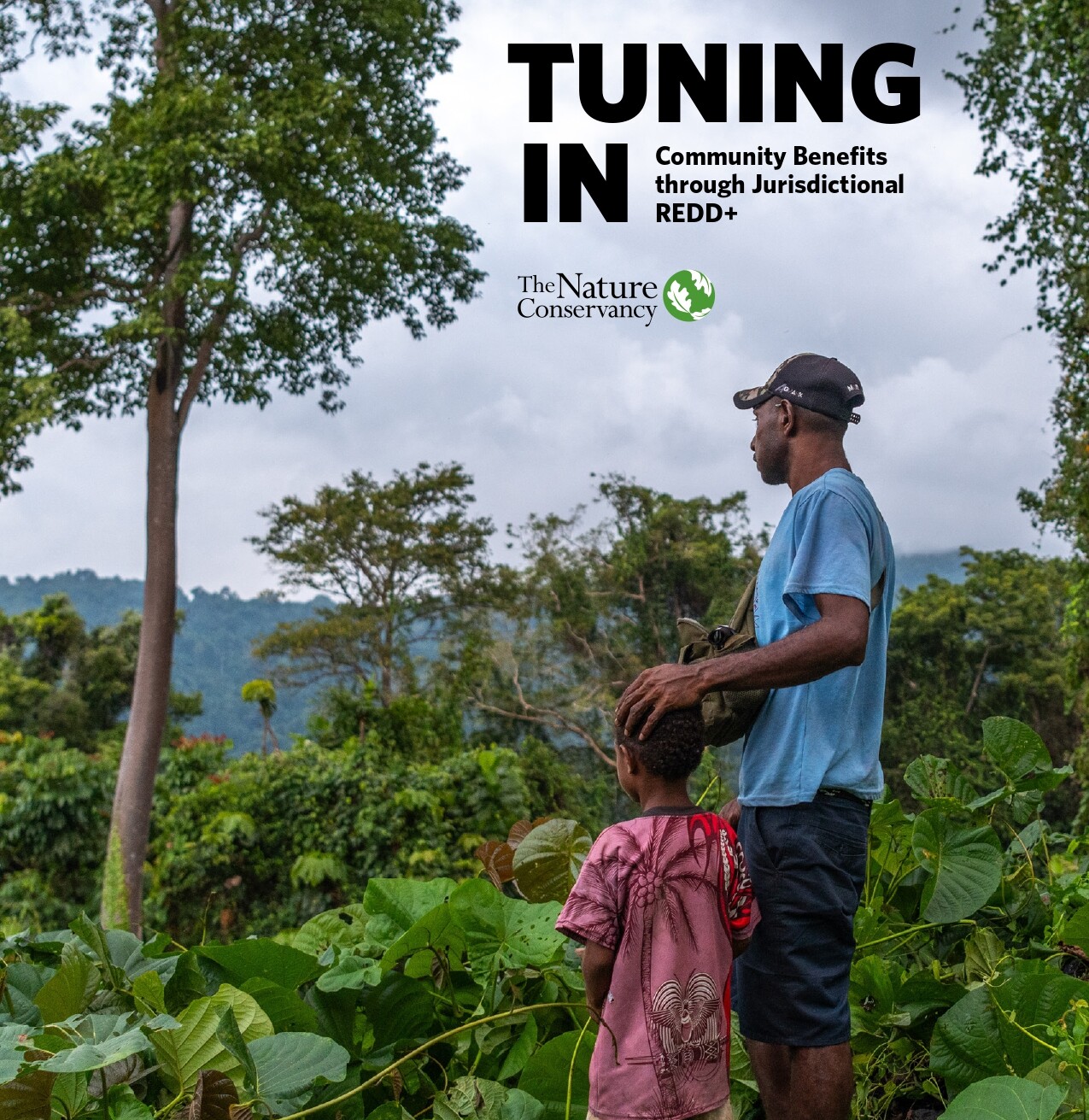
Tuning in: Community Benefits through Jurisdictional REDD+
After over a decade of preparations and groundwork, countries and jurisdictions are beginning to implement their Reducing Emissions from Deforestation and Forest Degradation (REDD+) programs. The timing is critical: this decade offers a rapidly closing window to keep global warming below 1.5 degrees Celsius, and the protection of tropical forests offers a low-cost and scalable pathway to limit warming by 2030.
While increased scale of both finance and impact is needed, jurisdictional programs must also respect the rights of the Indigenous Peoples, Local Communities, Smallholders, Youth, Women, and others and ensure that implementation of program activities fully recognize and reward these groups. One important form of recognition comes from benefit-sharing: that is, recognizing and rewarding groups for results from the jurisdictional REDD+ (JREDD+) in the form of non-monetary or monetary payments.
This report seeks to highlight JREDD+ benefit-sharing plans (BSP) by analyzing case studies and common traits across operational benefit-sharing approaches. However, it is important to note that while many BSPs have been designed, fewer JREDD+ programs have received and disbursed payments to beneficiaries to date. Additional insights and lessons learned may be gleaned as more JREDD+ programs move from implementing BSPs to disbursing results-based payments.
